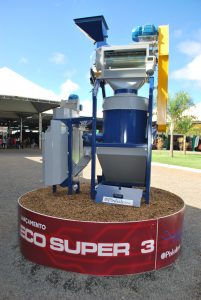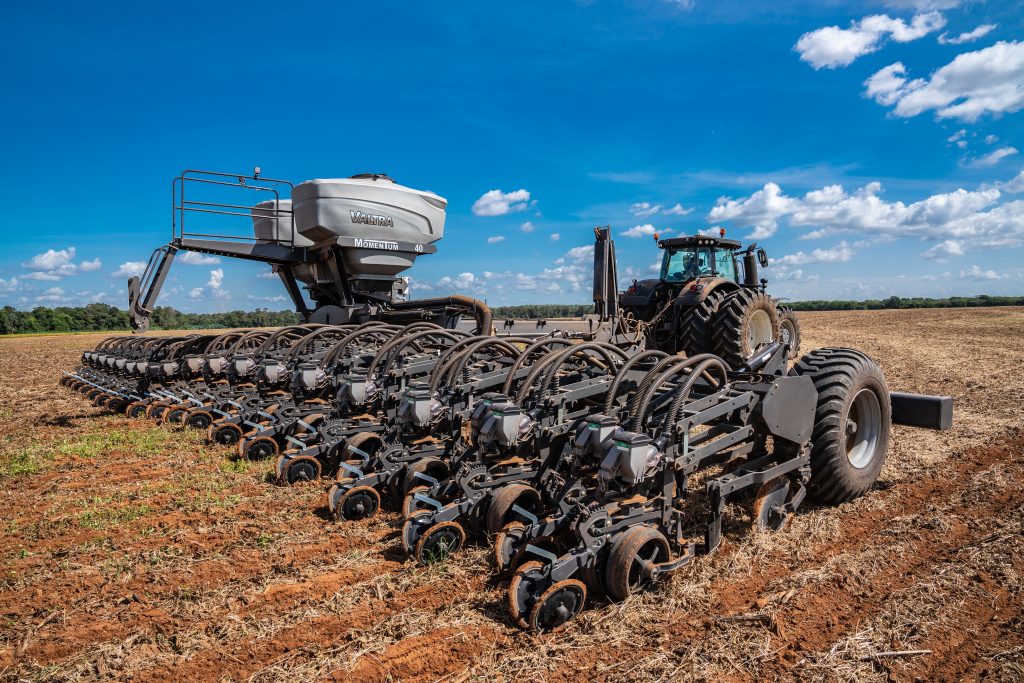São Paulo – A cornerstone for a truly sustainable growth, the concept of ‘green technology’ has been the focus of product development and service companies. It is about environmentally friendly solutions that generate less waste or use renewable energy sources. Green technology production has been encouraged, for example, by the National Institute of Industrial Property in Brazil, which expedites the registration of these creations through the Green Patent program. Since 2012, the project has received 844 requests and issued 294 letters patent through February 2020.
In the agriculture sector, many solutions have come from the green information technology. Through digitization, it seeks ways to save resources such as water and reduce the unnecessary use of pesticides, for example. It’s what multinational company AGCO has tried to do with projects such as Farm Solutions. The program consists of agronomic solutions for precision agriculture and brings sustainable gains.
AGCO technology specialist Vinícius Cunha explains that the idea is making machineries already available in the market more efficient through technology. In each region where the brand operates, it was necessary to adapt to local needs, and that’s where Brazil took the forefront. “Software is not AGCO’s expertise. So, the company thougth on combining its know-how with companies that could supply a software, for example. These partnerships are more advanced in South America. Probably because of our culture, we’re more open to working with partnerships,” Cunha pointed out.
Solutions developed so far are divided into three categories. AgroCAC planting and spraying projects reduce soil compaction and the number of pesticide applications, since they accurately control already sprayed areas. Inceres control plant population and correct contour line planting, reducing the waste of inputs. Finally, Solinftec performs the climate management, helping to choose the right moment to apply pesticides or water the crop, which generates water saving.
AgroCAD, for example, has a partnership with Brazilian company Tecgraf Tecnologia em Computação Gráfica. According to AGCO, the solutions can be used both in its machinery brands, such as Massey Ferguson, Valtra, and Fendt, and machinery by other manufactures.
Key to the decision to develop each line were the needs of the producer, which was heard throughout the company’s creation processes. “One problem [the farmers pointed out] that I can mention is the soil compaction, which impacts any crop and the water usage. In compacted areas, the plant’s water abortion is more difficult,” Cunha pointed out.
He believes that reducing fossil fuels, for example, is not just an environmentally friendly choice but financial as well. “I always talk about the importance of productivity. We think in producing more, but sometimes it’s not sustainable. When you can plan your actions, you become more efficient and makes maximum use of technology,” he said.

In search of sustainability, São Paulo-based company Pinhalense Máquinas Agrícolas created two equipment for coffee crops. One is Selecionadora de Cerejas, which uses a digital scan to separate green from ripe fruits. The water consumption is high in this process, and the machine was developed to reduce consumption, which could reach zero. According to the company, the machine has a high precision and high capacity, making the process quicker and raising productivity.
The company decided to invest in still another machinery that covers other production phases in 2020. EcoSuper 3 has a triple solution, featuring pulp separator, demucilager, and green fruit separator. According to Pinhalense, it also reduces the water usage in its processes and is designed for the small-sized farmer.“Pinhalense is concerned with the sustainability criteria such as the SDG. Therefore, it started its sustainable developments over 5 years ago, enhancing previous equipment and bringing products such as these,” Pinhalense president Reymar Coutinho de Andrade pointed out.
Also for small-sized farms, Marília-based company Jacto created and launched last year its first app-controlled knapsack sprayer. The equipment is battery-powered and can be used in several kinds of crop to apply inputs and pesticides. The innovation is that the equipment is connected to a smartphone via Bluetooth and, through an app, the user can control the application areas and quantities, avoiding waste and the exaggerated application of products in the soil.
Other brands, such as Almeida Equipamentos, although they have not created any green technology, have decided to incorporate it in their portfolio. “We launched our ecologic grass trimmer line in 2014. The equipment stands out because, instead of removing the organic material from the soil, it redirects it to the tree base. It goes straight to the orange or coffee tree. The idea is reusing it as fertilizers,” the company’s marketing analyst Henrique Salustiano said.
The company sells other grass trimmers too but has sold 800 units of the ecologic kind so far. The main sector that purchases it is citriculture. “The ecologic unit is more expensive because it features a spreader as well as the slitting knife. Now, it has been demanded in the market because it’s already known throughout the country for this function,” Salustiano explains about the economy generated by using waste as fertilizers.
There are still other Brazilian companies that started with one sustainable equipment and moved to services on this vein. It’s the case of Silo Verde. The startup has earned sustainability awards with its silo made of recycled PET containers. The product stores agro-industrial materials and is focused on the small- and medium-sized producers. In 2019, the startup received funds from Triel, an agro-industrial logistics group. Now, it provides consulting services and has a software that analyses storage conditions as humidity, temperature and consumption.
Translated by Guilherme Miranda




